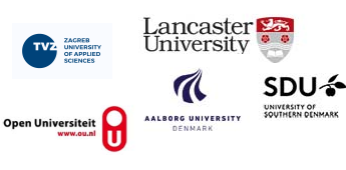

The Epistemic Practice of Networked Learning
Vivien Hodgson, David McConnell
Lancaster University Management School, Lancaster, United Kingdom. Curtin University, Perth, Australia.
Keywords
Networked Learning, Learning Community, Criticality, Critical Spaces, Epistemic Practice
Abstract
This paper has two aims; first to understand how networked learning has developed as a field and educational approach in the last 20 years; and second to consider the contribution the Networked Learning Conference has had to the development of the field. To achieve this we conducted a survey of people who have regularly presented or published papers from the Networked Learning Conference (NLC) since its inception in 1998. The purpose of the survey was to understand the role the conference has played for them in the development of their thinking and ideas over time, and what this means for the theory, pedagogy and practice of networked learning.
In order to provide a context in which to examine respondents’ experiences of networked learning, we situate the paper in the current definition of the term. Since the first conference in 1998, the definition of networked learning has come to be defined as involving the key characteristics of learning community; connections; reflexivity; criticality; collaboration; and relational dialogue.
Our survey involved sending an email to 30 NLC participants in which we asked them to respond to five questions about their experience of the conference. 21 responses were returned. In general, many people felt that networked learning gives a frame of reference where the conference enacts the values of networked learning as a research community. We thus argue in the paper that a closer examination of the NLC offers an interesting opportunity to re-evaluate key characteristics and values associated with networked learning, which informs us of networked learning as a social practice.
To achieve this, we focus in depth on four areas that figured particularly strongly in the analysis and which we believe are worthy of further discussion. They are critical space, community, scholarship, and developing practice. We found there was a degree of overlap and interaction between these areas, and that together these four areas constitute key aspects to the way way the networked learning conference 'institutionalises' networked learning as a practical accomplishment.
Joint Organising Institutions
Open University of The Netherlands
| Past Conference Proceedings | Contact |